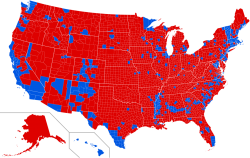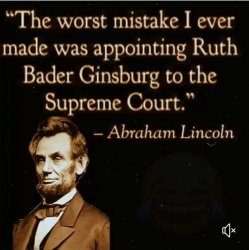livingston
20×102mm Vulcan
Originalism and Stare Decisis
Originalism and Stare Decisis
Authors
Amy Coney Barrett, Notre Dame Law School
Abstract
The question whether stare decisis is compatible with originalism has occupied both originalists and their critics. In this Essay, I explore what light Justice Scalia’s approach to precedent casts on that question. I argue that while he did treat stare decisis as a pragmatic exception to originalism, that exception was not nearly so gaping as his “fainthearted” quip suggests. In fact, a survey of his opinions regarding precedent suggests new lines of inquiry for originalists grappling with the role of stare decisis in constitutional adjudication.
ORIGINALISM AND STARE DECISIS
Amy Coney Barrett*
INTRODUCTION
Justice Scalia was the public face of modern originalism. Originalism
maintains both that constitutional text means what it did at the time it was
ratified and that this original public meaning is authoritative. This theory
stands in contrast to those that treat the Constitution’s meaning as susceptible
to evolution over time. For an originalist, the meaning of the text is fixed
so long as it is discoverable.
The claim that the original public meaning of constitutional text constitutes
law is in some tension with the doctrine of stare decisis. Stare decisis is
a sensible rule because, among other things, it protects the reliance interests
of those who have structured their affairs in accordance with the Court’s
existing cases. But what happens when precedent conflicts with the original
meaning of the text? If Justice Scalia is correct that the original public meaning
is authoritative, why is the Court justified in departing from it in the
name of a judicial policy like stare decisis? The logic of originalism might
lead to some unpalatable results. For example, if the original meaning of the
Constitution’s Gold Clauses prohibits the use of paper money, is an originalist
bound to plunge the economy into ruin? Some constitutional theorists
treat precedent as capable of supplementing and even supplanting the text’s
historical meaning; for them, choosing to follow precedent that diverges
from the original meaning is relatively unproblematic. Originalists, in contrast,
have difficulty identifying a principled justification for following such
precedent, even when the consequences of overruling it would be extraordinarily
disruptive.
Recommended Citation
Amy C. Barrett, Originalism and Stare Decisis, 92 Notre Dame L. Rev. 1921 (2017).
Available at: https://scholarship.law.nd.edu/ndlr/vol92/iss5/2
Click top link for more ...
Originalism and Stare Decisis
Authors
Amy Coney Barrett, Notre Dame Law School
Abstract
The question whether stare decisis is compatible with originalism has occupied both originalists and their critics. In this Essay, I explore what light Justice Scalia’s approach to precedent casts on that question. I argue that while he did treat stare decisis as a pragmatic exception to originalism, that exception was not nearly so gaping as his “fainthearted” quip suggests. In fact, a survey of his opinions regarding precedent suggests new lines of inquiry for originalists grappling with the role of stare decisis in constitutional adjudication.
ORIGINALISM AND STARE DECISIS
Amy Coney Barrett*
INTRODUCTION
Justice Scalia was the public face of modern originalism. Originalism
maintains both that constitutional text means what it did at the time it was
ratified and that this original public meaning is authoritative. This theory
stands in contrast to those that treat the Constitution’s meaning as susceptible
to evolution over time. For an originalist, the meaning of the text is fixed
so long as it is discoverable.
The claim that the original public meaning of constitutional text constitutes
law is in some tension with the doctrine of stare decisis. Stare decisis is
a sensible rule because, among other things, it protects the reliance interests
of those who have structured their affairs in accordance with the Court’s
existing cases. But what happens when precedent conflicts with the original
meaning of the text? If Justice Scalia is correct that the original public meaning
is authoritative, why is the Court justified in departing from it in the
name of a judicial policy like stare decisis? The logic of originalism might
lead to some unpalatable results. For example, if the original meaning of the
Constitution’s Gold Clauses prohibits the use of paper money, is an originalist
bound to plunge the economy into ruin? Some constitutional theorists
treat precedent as capable of supplementing and even supplanting the text’s
historical meaning; for them, choosing to follow precedent that diverges
from the original meaning is relatively unproblematic. Originalists, in contrast,
have difficulty identifying a principled justification for following such
precedent, even when the consequences of overruling it would be extraordinarily
disruptive.
Recommended Citation
Amy C. Barrett, Originalism and Stare Decisis, 92 Notre Dame L. Rev. 1921 (2017).
Available at: https://scholarship.law.nd.edu/ndlr/vol92/iss5/2
Click top link for more ...





